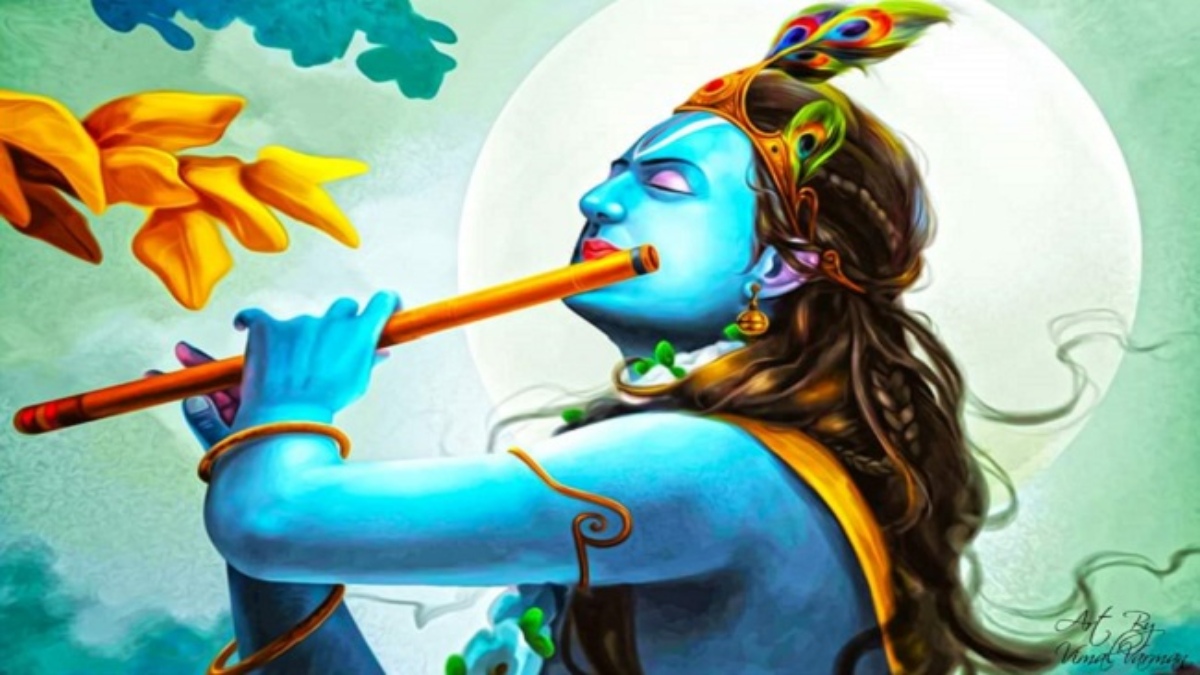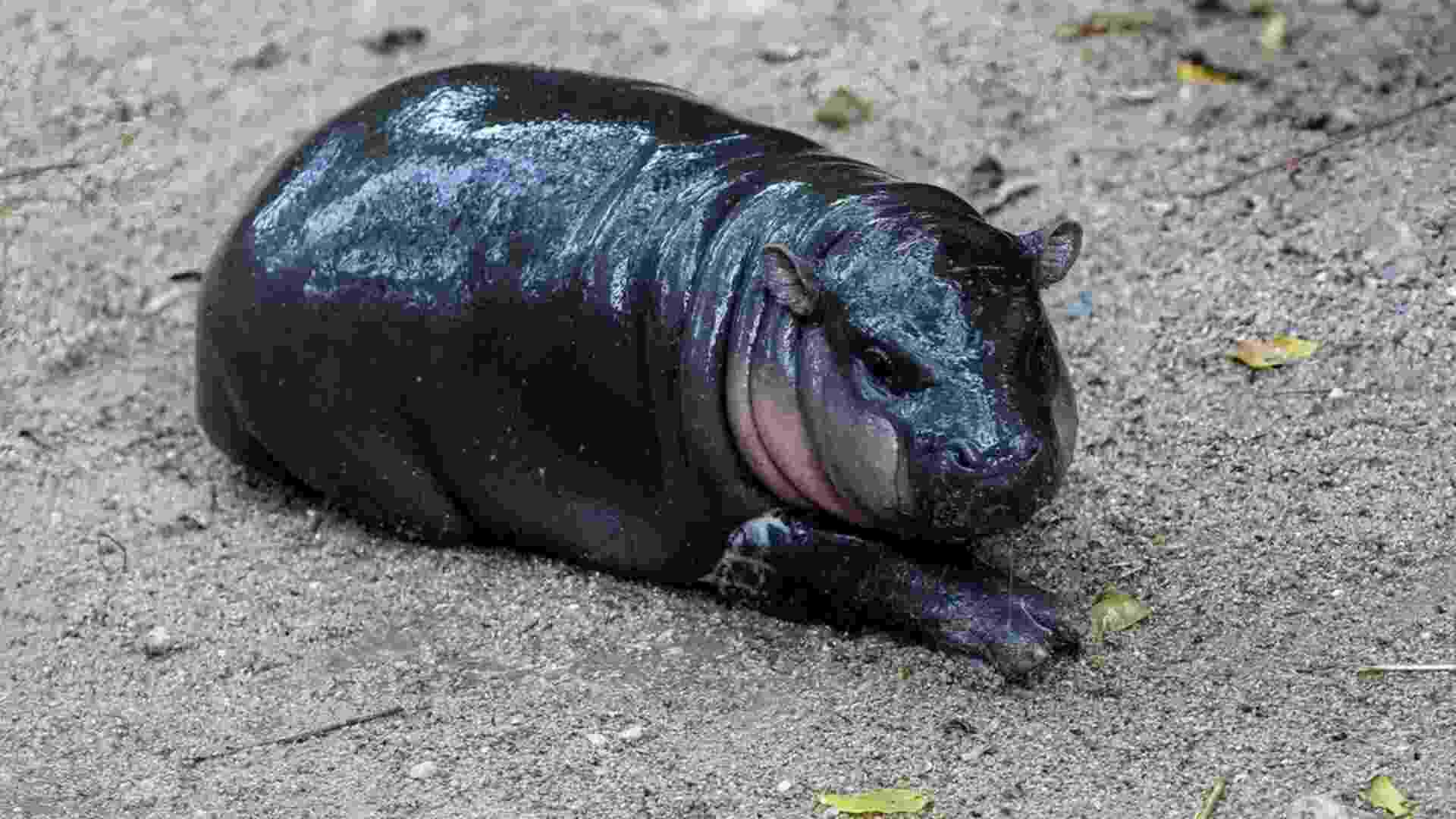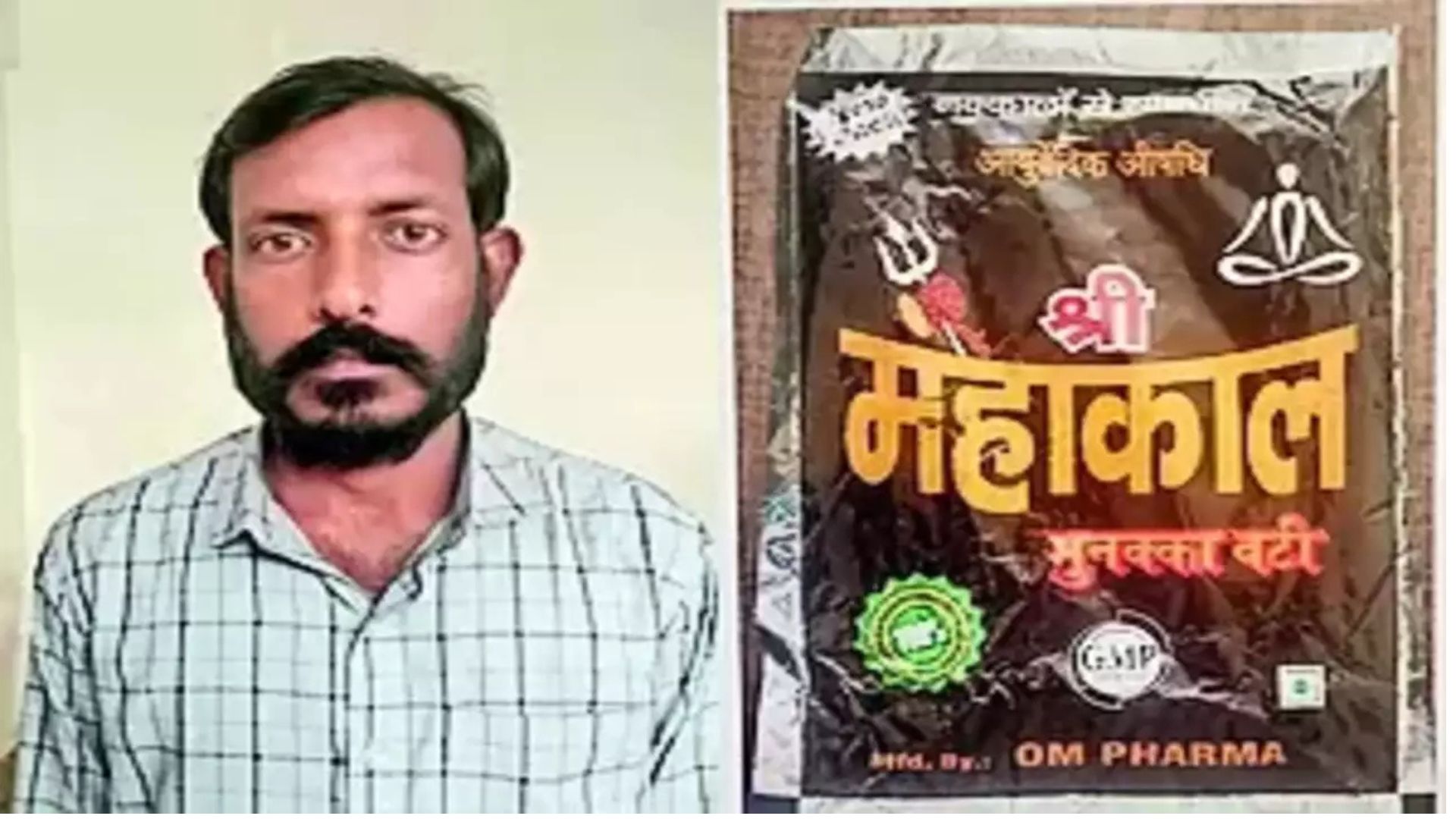
T he Supreme Person who is completely independent and free to act according to His desire is Sri Krishna. He exists as the Supreme Truth, one without a second; but is inconceivably always in the company of His eternal energies. These energies are never independent of Krishna; rather they are intimately related to Him. This is stated in the Vedic mantras.
Krishna is the independent principal conscious entity, and the energies are His attributes. They can never be independent. Krishna may be called vibhu, the omniscient, omnipresent, omnipotent master, and the manifestations from His energies—all other existing phenomena—may be called vaibhava, the opulent expressions of His factual existence. Yet, even amid unlimited, countless energies scattered throughout endless time, Krishna remains separate and independent in His original form. It is through these energies, these vaibhava of the vibhu, that the Lord’s presence can be perceived.
The manifestations from Krishna’s energies are of three types: cid-vaibhava, or spiritual manifestations coming from Krishna’s spiritual potency; acid-vaibhava, or the dull, unconscious material world; and jiva, or countless souls, small particles of spirit. This is the statement of scripture.
CID-VAIBHAVA: SPIRITUAL MANIFESTATION
The cid-vaibhava consists of Krishna’s abodes, such as the unlimited number of Vaikuntha planets; Krishna’s unlimited names, such as Govinda, Hare, etc.; Krishna’s unlimited forms, such as the two-handed form holding the flute; Krishna’s extraordinary qualities, such as affectionately giving bliss to His devotees; Krishna’s pastimes, such as the rasa-lila of Vraja and the sankirtana activities of Navadvipa. Even though these spiritual manifestations may descend into the material world and be visible or perceivable by the living entities, they remain spiritually untouched by material influence. All these elements intimately related to Vishnu or Krishna are called Vishnupada throughout the Vedas. The word denotes that the cid-vaibhava are inseparable from the Lord Himself. The spiritual phenomena are inseparable from the prime spiritual entity.
Therefore, in the spiritual realm of Vishnupada, the changes which occur due to the influences of the material energy are not present. That realm is transcendental to material change, and like Lord Vishnu Himself, is pure goodness, unmixed with passion or ignorance in the least, unlike the condition of the material world. Krishna and the plenary Vishnu expansions are all of the pure goodness. Thus, whether in Goloka, Vaikuntha, the Causal Ocean, or the material world, these personalities remain unaffected, as the Lord of all the demigods and the Lord of maya.Vishnu forms are the Lords of maya and are in pure goodness, whereas Brahma, Siva, etc. possess goodness mixed with other modes.
ACID-VAIBHAVA
Across the Viraja River, which is the separating boundary, opposite from the Vishnu forms, spiritual abodes, spiritual pastimes and other spiritual manifestations, lies the nonspiritual realm composed of the universes of fourteen planetary systems. This realm under the control of the Lord’s illusory energy is called Devidhama, the abode of maya. It is composed of the five material elements (earth, water, fire, air and ether), plus mind, intelligence and false ego, which form the gross and subtle bodies of the living entities. The seven upper and seven lower planetary systems are all contained within the acid-vaibhava, or nonspiritual manifestation of one of the Lord’s energies.
JAIVA-VAIBHAVA
Whereas the spiritual manifestation (cid-vaibhava) is the full spiritual principle, and the illusory material world (acid-vaibhava) is its shadow, jivas are atomic particles of the spiritual element. Because the jivas are spiritual in character, they also have some degree of independence and have the potentiality of unlimited bliss which is natural to the spiritual realm. Those jivas who resort to Krishna to attain that bliss remains as liberated souls eternally associated with Krishna. But, thinking of his own happiness, if one selfishly desires to enter the neighbouring abode of maya, he turns away from Krishna and takes a material body in the material universe. Having fallen into the revolving wheel of continuous activities, good or bad, with their results, the jiva wanders throughout the universe, sometimes in svarga, sometimes in hell, taking birth with a material body to enjoy life in all the eight million four hundred thousand species of beings
But as You are the Lord, the controller of the jivas, and the jivas are Your energies, You are always thinking of their welfare. Whatever happiness a jiva may seek, You kindly bestow it. Therefore one who desires impermanent happiness in the material world achieves it without difficulty by the Lord’s mercy. All the processes to achieve this happiness of sense gratification, such as rules of varna and asrama, yajna, yoga, homa, and vrata, which are pious activities, are simply material without spiritual transcendental nature at all. The results of these practices—elevation to higher planets and sense enjoyment—are material and temporary. Thus, in such activities for satisfying the temporary senses, the soul remains unsatisfied. The attempt to achieve happiness by gaining a temporary situation on a higher planet is a gross error by the soul.
Similarly, by the mercy of devotees, a jnani may perform activities of bhakti. Such jnana mixed with devotional activities is also classified as a secondary path of bhakti. Such a jnani easily arrives at the stage of faith in Krishna, and can quickly proceed in full devotional service
The servant jivas, desiring the trifling fruits in the hell of the material world, reject their master, but Krishna, knowing what is best for their welfare, forces them to give up the enjoyment (bhukti) resulting from fruitive activities (karma) and the liberation (mukti) resulting from speculative endeavours (jnana), and at last bestows the sweet fruit of devotion to Krishna (bhakti). It is only the mercy of the Lord, who is made of pure mercy, that He puts the jivas on a secondary path which lets the jiva fulfil his material desire for some time, but simultaneously gives him faith in the process of bhakti. If it were not for the mercy of the Lord, how could the living entities ever become pure and enter their position of happiness in the spiritual realm?
In the Satya-yuga the Lord supplied the process of meditation, by which the rishis became purified. Attaining purification, the Lord gave the treasure of bhakti. Similarly, in the Treta-yuga, the Lord arranged for purification through a performance of sacrifices, and in Dvapara-yuga, the Lord gave temple worship for purification, as paths leading to bhakti. But seeing the pitiful state of the jivas in the Kali-yuga, the Lord gave up hope in the processes of karma, jnana and yoga. In Kaliyuga such troubles as short life, many diseases, decreased intelligence and strength, afflict all jivas. Therefore the secondary paths of karma and jnana— the practices of varnasrama, sankhya, yoga and jnana, mixed with a little devotional activity—are too narrow and obstructive. The only result in Kali-yuga of these paths is a deviation from the path of bhakti. Thus if one takes to these paths in hope of success in the Kaliyuga, life will simply become difficult for the jivas.
Gauranga Sundar Das is Iskconinc Communication Director and SM IT Head.















